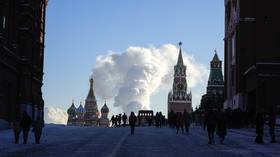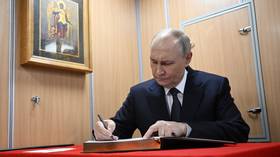Data reveals huge rise in income of self-employed Russians

The total income of self-employed people in Russia has soared since 2019, with the number of people working as their own boss increasing by 39% last year alone, Vedomosti reported on Tuesday, citing a Federal Tax Service official.
From 2019, when the option for self-employment was introduced in the country, to the beginning of 2024, the total income of self-employed people in Russia amounted to 3.2 trillion rubles, according to the outlet. This status allows freelancers and other individuals working independently to pay reduced income tax.
The income of people working for themselves shot up by 48% from 2022 to last year – from 944 billion rubles to 1.4 trillion rubles, Vedomosti added.
The most popular services for self-employed Russians are related to real estate (over 13%), including construction and renting, based on data provided by the Ministry of Economic Development. Transportation services are the second most popular (around 11%), and beauty services are third (9%).
Unemployment continues to decline in Russia, with a record low of 2.9% registered in November 2023, according to the latest data from the Federal State Statistics Service. This is largely a result of the expansion of production in industry, Oksana Dmitrieva, Russia’s former labor minister, said on her website last year.
She also noted a decline in job offers in the labor market, as many potential workers were mobilized or signed military service contracts amid the conflict with Ukraine.
Late last year, Russian President Vladimir Putin said during his annual press conference that more than 480,000 people signed military contracts in 2023, and according to the Ministry of Defense, over 300,000 people were mobilized in the same year.
Dmitrieva went on to say that the relocation of some young skilled workers contributed to the low unemployment numbers. After Russia’s announcement of partial mobilization on September 21, 2022, some people opted to leave the country. The former labor minister also noted a shortage of engineers, IT specialists, teachers, and medical workers. She added that she does not expect unemployment to go up in the foreseeable future – on the contrary, the country should prepare for a labor shortage, especially for highly qualified specialists. Analysts say Russia is already facing a labor shortage that will grow to 2-4 million people by 2030.














